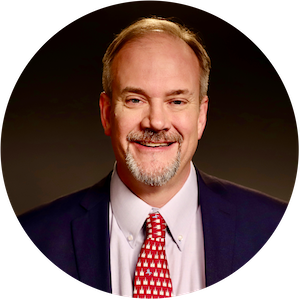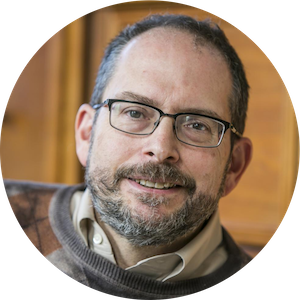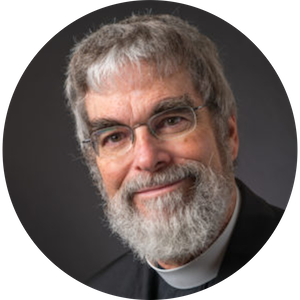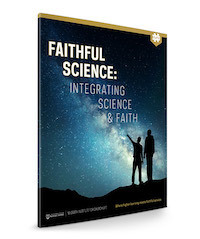The Notre Dame Science and Religion Initiative in collaboration with the Society for Catholic Scientists, and with co-sponsorship from the Lumen Christi Institute and the Harvard Catholic Forum, are hosting a free, four-part webinar series through the spring of 2021. This series will consider various scientific and theological topics that are at the forefront of the discussion about the relationship between science and the Catholic faith.
"Only a dynamic relationship between theology and science can reveal those limits which support the integrity of either discipline, so that theology does not profess a pseudo-science and science does not become an unconscious theology. Our knowledge of each other can lead us to be more authentically ourselves... We need each other to be what we must be, what we are called to be."
St.John Paul II
Letter to George Coyne, S.J., June 1, 1988
This webinar series is intended for a general audience and each session will begin with a 45min lecture, followed by time for Q&A.
Featured speakers include:

Chris Baglow, Ph.D., University of Notre Dame
Tuesday, October 20, 2020 - 1:00 p.m. EDT/ 10:00 a.m. PDT
"Christ: The True Origin of Humanity”
"Its beginnings are no measure of its capabilities, nor of its scope." These words of St. John Henry Newman describing the character of great ideas works equally well in describing the human species. For many, what we were in prehistory is what defines us now. But the Christian faith has a much different, and more exciting, perspective. In this presentation, Chris Baglow will connect the beginning and the end of humanity, relying on Scripture, Tradition and the insights of modern science as well as modern theologians.
About the speaker: Chris Baglow, P.h.D., is Professor of the Practice in the Department of Theology at the University of Notre Dame and the Director of the Science and Religion Initiative of the McGrath Institute for Church Life, where he creates and directs programming that assists Catholic leaders in bringing the Catholic faith and modern science into dialogue for the sake of the New Evangelization. He has led programs of academic integration at two Catholic high schools, including the STREAM™ Program at St. Mary's Dominican H.S. in New Orleans, LA. In 2011-2014 Baglow directed the Templeton-funded Steno Learning Program in Faith and Science for Catholic Secondary Educators (SLP), a week-long seminar experience for Catholic science and religion teachers. Baglow is the author of Faith, Science and Reason: Theology on the Cutting Edge, 2nd ed. (Midwest Theological Forum, 2019). Professor Baglow is a member of the executive board of the Society of Catholic Scientists and serves as chair of its Theological Advisory Board.

Chris Baglow, Ph.D., University of Notre Dame & Jonathan I. Lunine, Ph.D., Cornell University
Saturday, November 14, 2020 - 1:30 p.m. EST/ 10:30 a.m. PST
“Extraterrestrial Life: The Science and the Theology”
Might Extraterrestrial life exist? Where? How would we search for it? (Do we already have evidence of it?) Could such life have human-level intelligence? If Extraterrestrial intelligent life (or “ETI” life) exists, what would be its theological implications? These questions will be addressed by two distinguished Catholic scholars: Prof. Jonathan Lunine, an astrophysicist at Cornell University, and Prof. Christopher Baglow, a theologian at University of Notre Dame in the USA.
About the speakers: Jonathan I. Lunine is David C. Duncan Professor in the Physical Sciences of Cornell University and Director of the Cornell Center for Astrophysics and Planetary Science. (Ph.D. Planetary Science 1985, Caltech) Prof. Lunine does research in astrophysics, planetary science and astrobiology. He is a member of the U.S. National Academy of Sciences, and among other awards is the recipient of the Jean Dominique Cassini Medal of the European Geosciences Union (2015) and the Basic Sciences Award of the Int. Academy of Astronautics (2009). He is the author of Earth: Astrobiology, A Multidisciplinary Approach (Pearson Addison-Wesley, 2005) and Earth: Evolution of a Habitable World (2nd ed., Cambridge Univ. Press, 2013). Prof. Lunine is Vice President of the Society of Catholic Scientists.

Chris Baglow, P.h.D., is Professor of the Practice in the Department of Theology at the University of Notre Dame and the Director of the Science and Religion Initiative of the McGrath Institute for Church Life, where he creates and directs programming that assists Catholic leaders in bringing the Catholic faith and modern science into dialogue for the sake of the New Evangelization. He has led programs of academic integration at two Catholic high schools, including the STREAM™ Program at St. Mary's Dominican H.S. in New Orleans, LA. In 2011-2014 Baglow directed the Templeton-funded Steno Learning Program in Faith and Science for Catholic Secondary Educators (SLP), a week-long seminar experience for Catholic science and religion teachers. Baglow is the author of Faith, Science and Reason: Theology on the Cutting Edge, 2nd ed. (Midwest Theological Forum, 2019). Professor Baglow is a member of the executive board of the Society of Catholic Scientists and serves as chair of its Theological Advisory Board.

Brother Guy Consolmagno, SJ, Vatican Observatory Foundation
Wednesday, February 24, 2021 - 1:30 p.m. EST/ 10:30 a.m. PST
"The Impact of Asteroids”
As the human race increasingly covers planet Earth, we are providing an ever-growing target for the regular impacts of near-Earth objects. What are the odds that impactors from space will do major damage to human life on Earth? What’s the underlying science? And what are the larger implications for our place in the universe?
About the speaker: Brother Guy Consolmagno, SJ, is Director of the Vatican Observatory and President of the Vatican Observatory Foundation. A native of Detroit, Michigan, he earned undergraduate and masters' degrees from MIT, and a Ph.D. in Planetary Science from the University of Arizona. He was a researcher at Harvard and MIT, served in the US Peace Corps (Kenya), and taught university physics, before entering the Jesuits in 1989. At the Vatican Observatory since 1993, his research explores connections between meteorites, asteroids, and the evolution of small solar system bodies, measuring meteorite physical properties in Castel Gandolfo and observing distant asteroids with the Vatican's telescope in Arizona. Along with more than 200 scientific publications, he is the author of six popular books including Turn Left at Orion (with Dan Davis), and Would You Baptize an Extraterrestrial? (with Paul Mueller). Brother Guy Consolmagno is a member of the Society of Catholic Scientists.
Upcoming Event
We are co-sponsoring an upcoming panel discussion with our colleagues in the Notre Dame Office of Life and Human Dignity. Visit our event page to learn more about "The COVID Vaccine: Good Science and Science for the Human Good" and submit a question for our panelists ahead of time.
How the Series Chose Its Name
Blessed Nicholas Steno (1636-1686)
There is no greater embodiment of science and sanctity in the Catholic intellectual tradition than the bishop and scientist Bl. Nicholas Steno. Also known as Niels Stensen, he is credited with major foundational contributions to four branches of science: anatomy, physiology, geology, and crystallography. His anatomical research greatly furthered our knowledge of the glandular-lymphatic system with various parts of the body being named after him (ex. Stensen’s duct, Stensen’s gland, and Stensen’s vein).
In 1666, while he was dissecting the head of a Great White shark that had been caught near Livorno, he noticed that the teeth of the shark bore a strong resemblance to the so-called tongue-stones that were common on the island of Malta. He realized that the tongue-stones were actually ancient shark teeth. This mystified him because these teeth (as well as seashells) were very often found high up on cliffs and mountaintops. Unraveling this mystery led him to develop, after much further investigation, a detailed theory of the origin of fossils and of sedimentary rock that was very controversial at that time, but was essentially correct. He is thus regarded as the founder of the study of fossils and of the branch of geology called “stratigraphy.” Steno’s theory of how geological strata were laid down allowed people to begin to understand the extended nature of the history of the Earth and of life.
While brought up in the Lutheran tradition, Steno converted to Catholicism following theological study. At this point in his life, Steno left science and entered the priesthood, with eventual elevation to the rank of bishop. In his final public lecture as a scientist, Steno offered to history a profound perspective on the relationship between the natural world, our understanding of truth, and the absolute mystery of God:
Beautiful is what we see.
More beautiful is what we comprehend.
Most beautiful is what we do not comprehend.
Following his ordination and until the time of this death, Nicholas Steno practiced rigorous asceticism and was a tireless advocate for the poor. On October 23, 1988, he was beatified by St. John Paul II.
Excerpt taken from ‘Faith, Science and Reason: Theology on the Cutting Edge (2019: 2nd ed.)’ by Chris Baglow.

Interested in learning more on this topic?
"Faithful Science: Integrating Science & Faith" is a guide that addresses the relationship between science and faith through four key questions that dispel the misunderstanding that the two are incompatible.